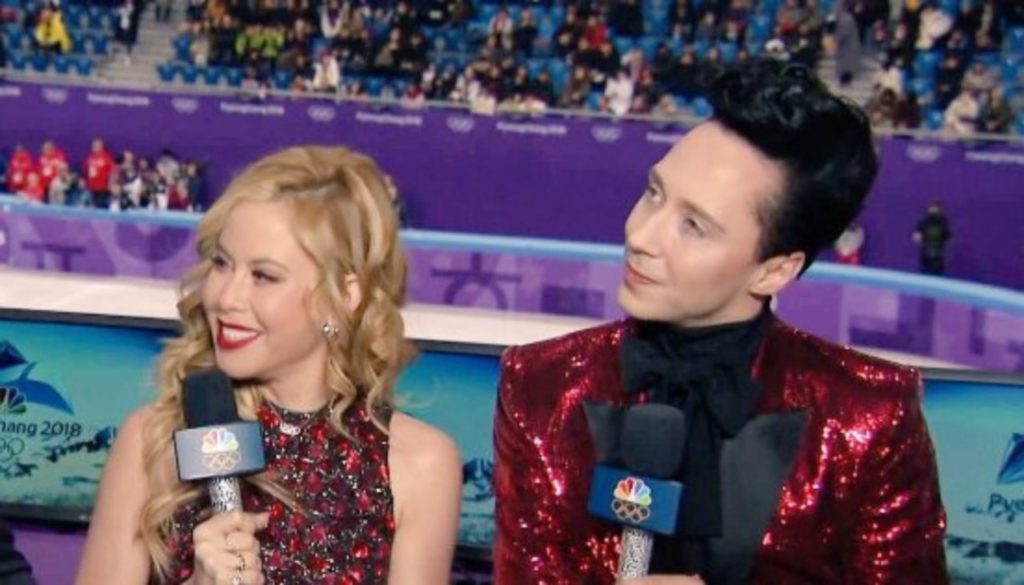Hot damn the Olympics are here and I, for one, am excited. You know the Olympics. It’s that biennial tradition when you gather around the television during Prime Time to pretend you care about swimming, or that you know the difference between figure skating and ice dancing, and eventually you probably just smoke a bunch of weed and watch curling for, like, hours.
You wake up at three o’clock in the damn morning to watch that nordic skier you have a crush on, or an early-bracket hockey game between warring nations that you think might be extra spicy. You know someone who is competing (or at least you know someone who knows someone [well really what happened was your sister’s boyfriend’s cousin made it to the Trials but got food poisoning and anyway she was on the long list so there).
You seize on a story of human grit and inspiration that resonates with you, like the US snowboarder who seeded in last, slept through his alarm, lost his coat, and then showed up to win maybe the most flustered Gold Medal of the games just in time to drop the F-Bomb on NBC. You know, heroes.
It’s the Olympics, that ancient celebration of pure sport, where amateur athleticism is prized above profits and professionalism. It is as much about the ceremony and pageantry as it is about the competition itself. But while the Olympics are, at some level, an opportunity for the entire planet to get together, hold hands, and sing Koombaya, we would be remiss not to remember that it is ultimately a festival of competition.
The Russians have not forgotten. Even after Russia was banned from this Olympics as a nation, hundreds of Russian Athletes managed to petition their way to the games, only to find that one of their curlers just got popped. For Doping. In Olympic Curling. Let that sink in.
And so I propose that we consider the nature of sport. All games, competitions, matches, at some level attempt to emulate the original struggle of life against death. The very purpose of sports is to define a framework of rules by which to define a winner somewhere before one of the contestants has died. But I propose that the nanny state constructed by the IOC has gone too far.
The Games have already embraced every variety of martial arts, from Karate, to Judo, to Tai Kwan Do. Wrestling was the original Olympic sport. Biathlon actually began as Military Trials, and included much more complex challenges than biathletes see today. The Olympic Commission introduces new sports at every Games, and it’s time to have a Hunger Games.
The rules would be simple. Set competitors on a small island with good closed circuit television (Alcatraz would do), and watch while they battle to the death on live TV*. The Olympics are a celebration of amateurism, of course, and so no active military service members or veterans should admitted. Youth and natural athleticism should be prized – and in order to ensure that no households are left without patriarchs and matriarchs, I suppose we should limit participants at, say, 19 years of age. Face it: you would watch.
It’s time for competition to return to its roots, and there’s no better venue than the Olympics to introduce the Hunger Games. The pageantry and production value are already in place, we need only to find competitors.
In fact, the only real issue I can see is that most countries on earth have more or less decided that they value the lives of their children. So far I guess it’s pretty much just the United States that cherishes the amusement of aging white men over the futures of its youth, and we may find that it’s hard to find nations to compete in the first few years.
The GREAT Olympic Hunger Games may need to begin as the GREAT American Hunger Games, with each of the 50 states submitting a competitor. That’s ok, this is going to be a hit, and once they see the ratings I’m sure all those European ninnies will clamber to get on board. It’s time to make competition competition again, let’s do it with the only rule that counts.
*It would probably need a short delay in case there was any cursing or nudity, that would be inappropriate for family audiences.
Like









